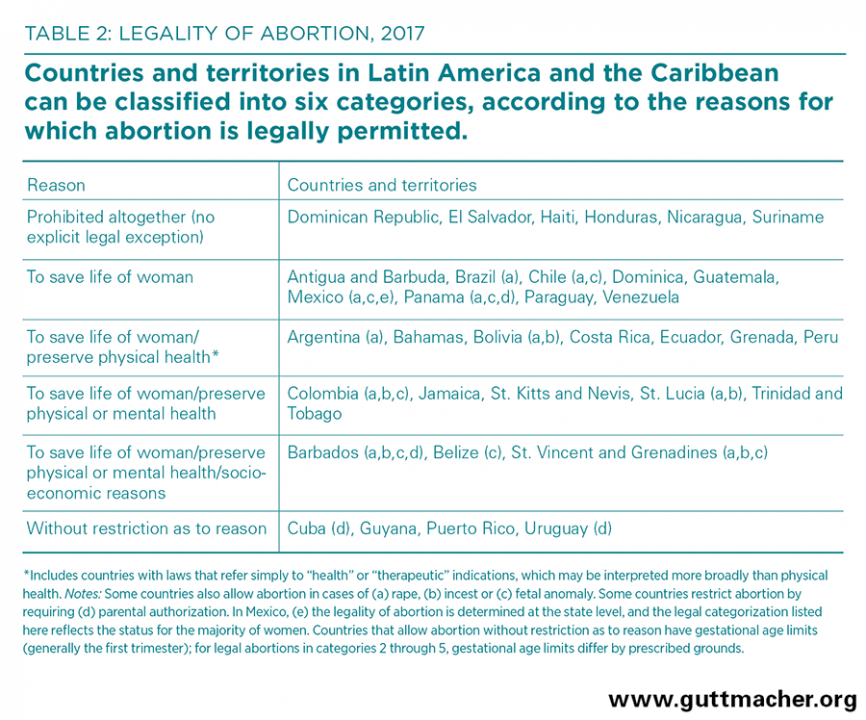Less than a month ago, residents in a deeply Catholic country, Ireland, voted to end its abortion ban, one of the most restrictive in the world. On Wednesday, another country is considering legalizing the procedure, but this time it’s Pope Francis’ homeland, Argentina.
Lawmakers are considering legislation that would legalize abortion in the first 14 weeks of pregnancy. Argentina’s lower house of Congress votes Wednesday. Should the measure pass, Argentina would be the most populous country in Latin America to legalize the procedure.

What does the law say about abortions?
Currently, it’s illegal to get abortions in Argentina. Doctors who perform abortions and patients who do undergo the procedure can both be jailed. Technically speaking, the only exceptions are for cases of rape or if the pregnant person’s life is in danger. But Salil Shetty, the secretary general of Amnesty International, told the New York Times “those exceptions are not actually honored, and what we see is a near total ban on abortions.”
This isn’t to say abortions don’t happen. The National Ministry of Health estimates that despite the law, 500,000 abortions are performed each year in the country. According to the Economist, “Argentina has a two-tiered abortion regime,” as the rich and middle-class are able to get relatively safe, but illegal abortions. For example, they can take misoprostol, costing about 2,800 pesos ($112), or get a doctor to perform.
Illegal abortions can be unsafe and life-threatening, particularly for those with modest means. Over 17 percent of the 245 recorded deaths of pregnant people in 2016 were due to abortion. As Human Rights watch points out, this makes abortion a top cause of maternal mortality in the country.
“To get an abortion, we are forced into darkness, we have to put our own health and wellbeing at risk, we lose autonomy over our bodies and we cannot freely decide to give birth,” Sandra Hoyos, organizer of the National Campaign for the Right to Legal, Safe, and Free Abortions, told nacla. “The actual law as it is currently written forces us into ‘obligatory maternity’ (maternidad obligatoria)—it does not offer the right to access abortion as a form of health care.”
Why is Congress voting now?
For more than a decade, organizers have been trying to legalize abortion. Now, reproductive justice advocates feel like their efforts are finally paying off.
“The time for this struggle is now because as feminists, we have put ourselves in charge of making it a part of the public agenda,” said Hoyos. “But this struggle is not only about abortion, it is also a combination of intersecting demands connected by the struggle for our rights. It is also about the need for legislation against gender violence, the increased visibility of femicide, and the need for comprehensive sexual education.”
The vote comes because of the recent emergence of a new, powerful Argentine feminist movement — largely driven by the Ni Una Menos (Not One Woman Less) movement and National Women’s Strike.Tens of thousands of people have protested in the streets wearing green, showing support for abortion rights.
Will it pass?
The prospect of legislation passing became politically feasible in recent years. President Mauricio Macri, who opposes abortion legalization, said he wouldn’t veto the bill should lawmakers send the bill to his desk, but did ask them to “vote their conscience.”
Congressional opinion, like the public’s, has shifted over time and so the lower house vote is expected to be very close. If the measure passes, it goes to the senate, where it’s expected to be defeated. Even so, advocates are still optimistic.
If this legislation does become law, what happens next can be held back by stigma.
“Even if [the bill] passes, obstetricians who are against it won’t make it easy,” one woman who had an abortion at 31 told the Guardian.
